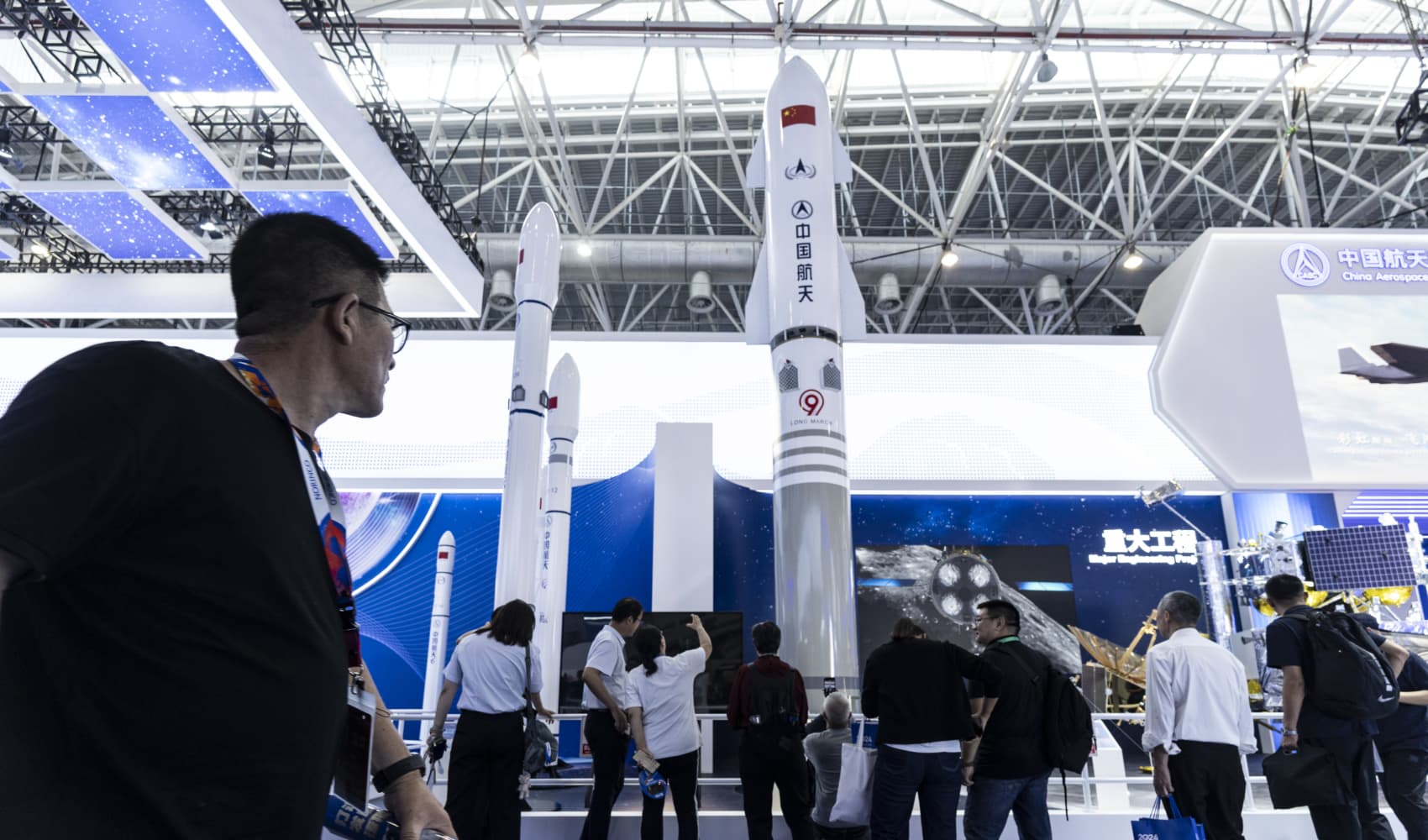
One step inside a spa's dimly lit room, and I'm already anticipating a serene, therapeutic experience: an hour-long full-body massage that leaves me relaxed and revitalized.
But a recent appointment at ila Only Spa at the luxurious Lotte New York Palace hotel didn't resemble past spa experiences.
Although a human escorted me into the room, a machine executed the massage — specifically, an artificial intelligence-powered robot courtesy of Aescape, a New York-based lifestyle robotics company.
Entrepreneur Eric Litman founded Aescape in 2017, after experiencing a bulging disc in his neck that he attributed to frequent flying, he said.
Get top local stories in Southern California delivered to you every morning. >Sign up for NBC LA's News Headlines newsletter.
He flew so often, he said, that he needed a daily massage for months. Those appointments got him thinking: Is there a better option for people like him who need regular massages, rather than a day at the spa?
Litman secured $80 million in funding and spent seven years on research and development before launching the world's first customizable robot massage in March.
Lotte New York Palace is the first hotel to partner with Aescape; it leases the machine and debuted the treatments on July 18. It's also available at select Equinox gyms in New York City as well as the Press Modern Massage in Union Square, according to the company.
Money Report
But this is only the beginning. Aescape plans to roll out myriad partnerships later this year, Litman said.
Tristina Damico, the hotel's spa director and a licensed massage therapist, said Aescape is a fit for the 900-room Lotte New York Palace, which attracts business and leisure travelers.
A mix of people have booked appointments with the robot since it launched, she said, including hotel guests and New Yorkers who live or work in Midtown Manhattan. They often schedule sessions during lunch hours since the massages are oil-free, she said.
"It's a quick way to recharge," said Damico.
Litman said making massages bookable on demand will fill a void in the global wellness market, an economy projected to reach $7.4 trillion by 2025, according to the Global Wellness Institute, a U.S.-based non-profit organization.
"I started looking into why people get massages and was surprised to find that most people [want] to fix something going on in their body," he said. "A lot of people wanted more specificity — more pressure here, less focus there — and had challenges getting that in just the way that worked for them."
A shortage of massage therapists in an ever-expanding industry also contributed to the founding of Aescape, Litman said, although he recognizes that the two are very different.
Therapists vary by style and skill, but Aescape's robot aims to replicate the same experience on every visit. It stores clients' data, which can be found on every machine.
"We save the physical preferences," Litman said. "The idea is we're building a massage that gets to know you over time."
What a robot massage feels like
For those who are uncomfortable stripping down in front of a stranger, Aescape solves the problem. This massage requires clothing.
Before the treatment, I slipped into Aerwear, the brand's proprietary spandex-like apparel that's designed to alleviate friction between the robot and human skin. After I changed, an attendant returned to show me how to operate the robot.
I lay face down on the massage table, which was firmer than a typical spa table. It also comes with armrests, a footrest, and a face opening revealing a tablet beneath, where I adjusted the table and the music to suit my comfort level.
Aescape focuses only on the back, so sadly, there are no leg or foot massages. Sensors scanned my body — the system supposedly captures 1.2 million data points to map a user's muscle structure — before its futuristic arms and knuckles moved up and down my back in a consistent parallel motion.
The appendages, albeit hard to the touch, were warm. A screen showed every step of my massage, and allowed me to control the pressure.
I typically request moderate pressure from massage therapists, but Aescape's middle setting felt intense. For most of my massage, I could tolerate the lowest force from the robot. That said, I comfortably cranked up the device to high during the glute portion toward the end of the massage.
I sensed the machine's movements coinciding with my breathing, and I could pause the robot when I needed a break. With the press of a button, I could shift, lift my head, or even get up for a quick stretch.
With that in mind, I could see Aescape benefiting travelers looking for short, flexible spa treatments. The robot could also appeal to people looking for more affordable massages that are easy to book — Aescape sessions are booked through an app. The price is $75 for a 30-minute massage at Lotte New York Palace.

My original appointment was postponed because of maintenance on the device, but the robot was back up and running the following day.
As someone who navigates chronic pain, I find that the kneading, rubbing and pressing of human hands can do wonders to relieve discomfort. However, I didn't get similar results from the AI-driven robot.
I didn't find the session relaxing, and I didn't feel as pampered as I do on a spa day, but the experience was an amusing escape from the chaos of Midtown Manhattan.






